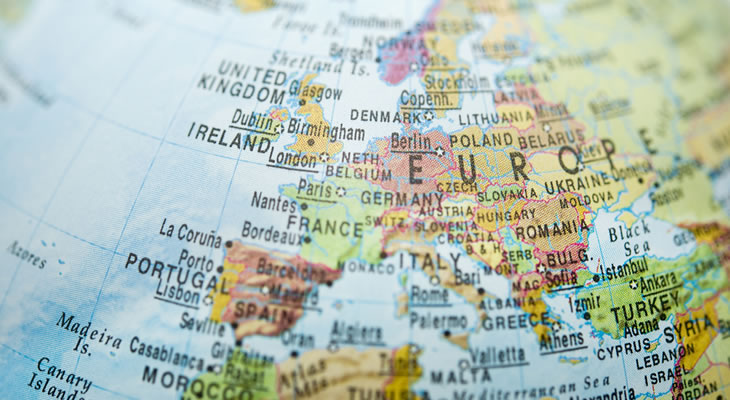Pound Euro (GBP/EUR) Exchange Rate Flat as Eurozone Construction Slumps to 32-Month Low
The Pound Sterling Euro (GBP/EUR) exchange rate was left flat this morning, with the pairing trading at around €1.1688.
The pairing was left flat on Tuesday as data revealed construction in the Eurozone slumped further than expected in September.
Annual construction output slumped by a worse-than-expected -0.7%, the first month the measure has fallen into contraction since January 2017.
Data revealed that out of the bloc’s largest economies, construction shrunk in both France and Spain while output slowed in Germany.
This dampened single currency sentiment, leaving the pairing muted as Sterling was left under pressure ahead of tonight’s live election debate.
Pound (GBP) Flat Ahead of Johnson-Corbyn Debate
Sterling was left under pressure on Tuesday ahead of this evening’s live debate between Prime Minister Boris Johnson and Labour Leader Jeremy Corbyn.
The pairing was left flat as the Conservative Party continues to lead the polls ahead of 12 December general election.
On Monday, ICM’s poll for Reuters revealed that the Conservatives extended their lead over the opposition to 10 points, which likely provided GBP with an upswing of support.
This along with Johnson’s announcement that all Tory candidates support his Brexit deal increases the chance of it being passed in the Commons in time for the January deadline.
Commenting on this, currency analyst at MUFG, Lee Hardman said:
‘[The] market’s just moving to price in a higher likelihood of a majority for the Tories.
‘We’ve had the opinion polls at the weekend generally all showing increasing support for the Tory party, making the market more confident they could win a majority, seen as more favourable in the short term.’
Euro (EUR) Flat as German Economy Likely to Stagnate
The single currency was left flat as while Bundesbank revealed that growth in the bloc’s largest economy will remain weak in the final quarter, there is no reason to fear a recession.
The bank said there are signs that the country’s industrial sector may be stabilizing.
While the country escaped recession in Q3, the figure is likely stabilization rather than a rebound because the export-focused sectors continue to be hit.
In its monthly economic report, Bundesbank noted:
‘The slowdown of the German economy will probably continue in the fourth quarter of 2019. However, it is not likely to intensify markedly. As things currently stand, overall economic output could more or less stagnate.’
The bank also noted that while the US-China trade tensions weighed on German industry, pushing the sector into recession, the domestic economy remained surprisingly resilient.
The Bundesbank also noted:
‘From today’s vantage point, there is no reason to fear that Germany will slide into recession.’
Pound Euro Outlook: Will Weak German Inflation Weigh on EUR?
Looking ahead to Wednesday, the Euro (EUR) could slump against the Pound (GBP) following the release of German inflation data.
If October’s Producer Price Index (PPI) slumps further than expected, it could dampen sentiment in the single currency.
Meanwhile, due to a lack of UK economic data, political developments as the UK gets closer to the 12th December election are likely to cause movement of Sterling.
If reports continue to reveal the Conservative Party is ahead in the polls and likely to secure a majority, the Pound Euro (GBP/EUR) exchange rate will rise.


Comments are closed.